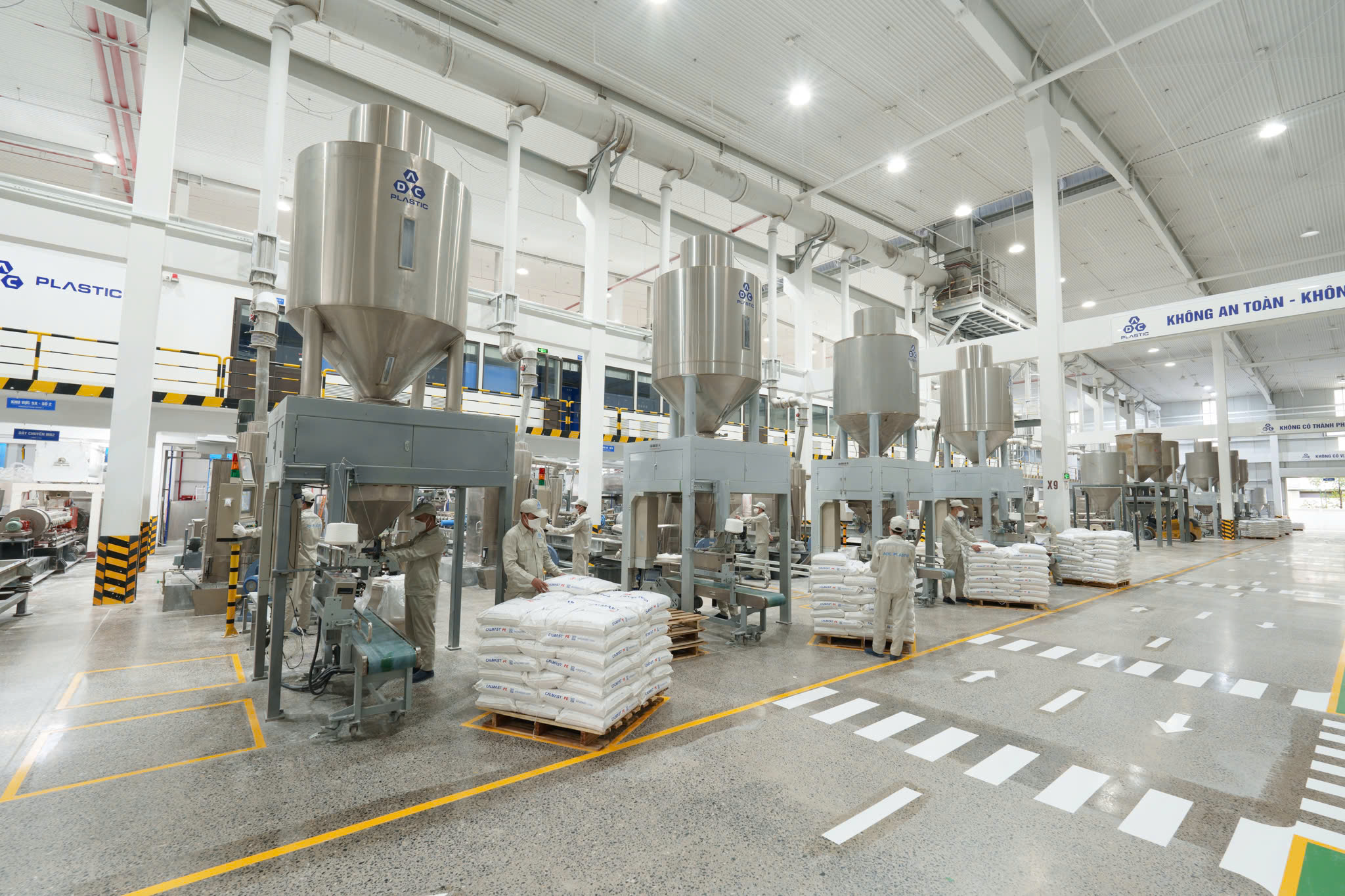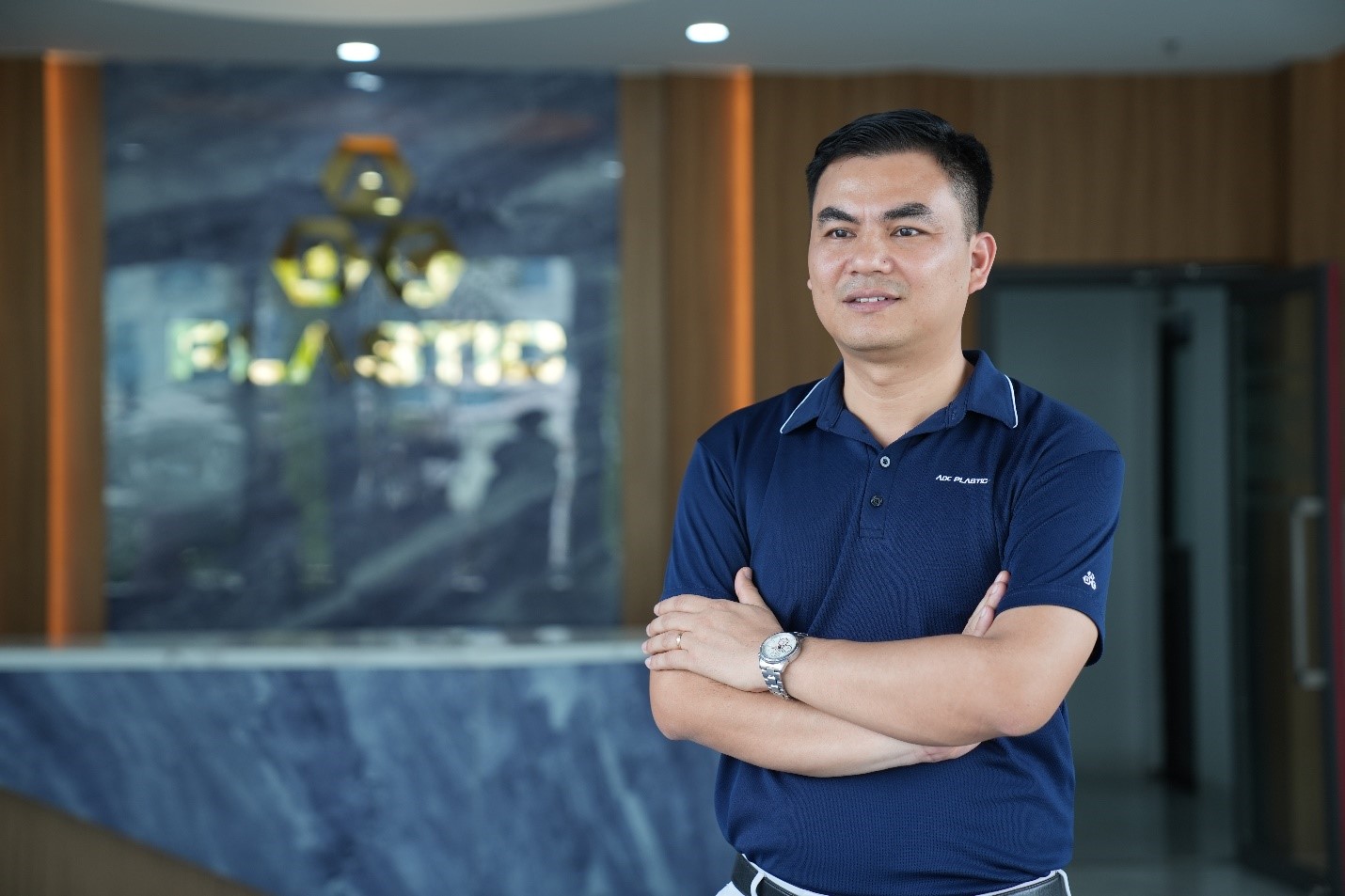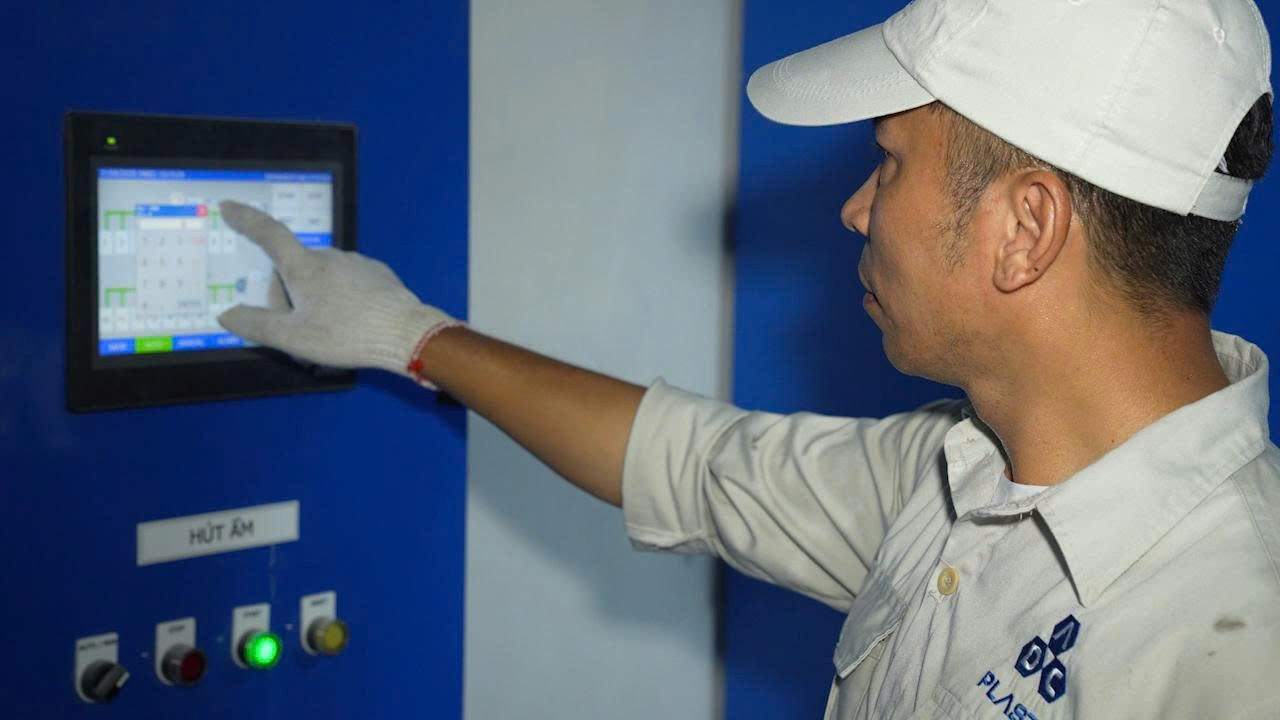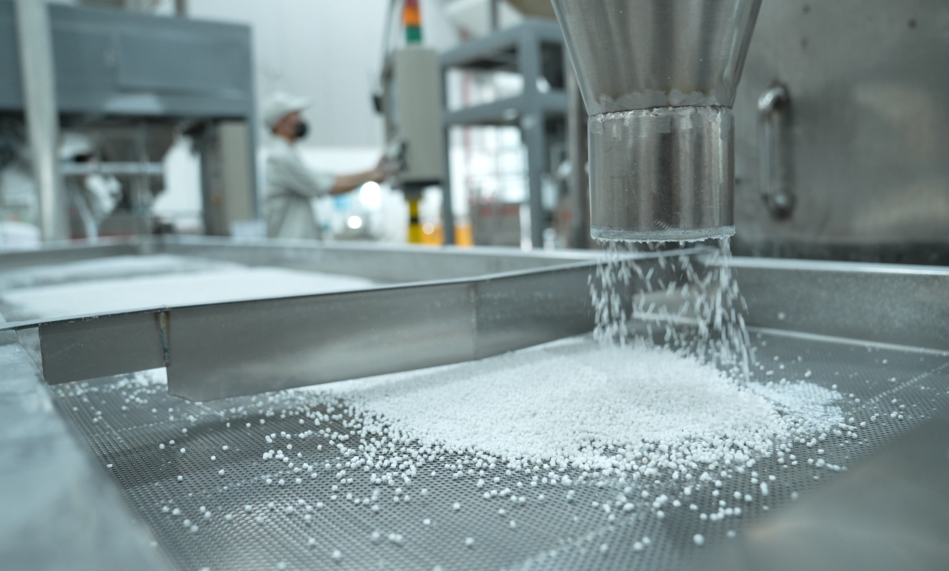ADC Plastic Joint Stock Company (ADC Plastic) operates in the field of filler masterbatch production for the plastics industry. Their products offer an optimal cost-saving solution for sectors such as packaging, plastic bottles, supermarket bags, non-woven bags, and household plastic injection molding.
With more than 20 years of establishment and development, ADC Plastic was the first Vietnamese exporter of filler masterbatch to reach the international market. The company currently owns a modern manufacturing facility, among the most advanced in Vietnam’s plastics industry, with a production capacity of 460,000 tons per year.
Advanced, highly automated production line for energy savings.
According to Mr. Pham Van Tam, Head of Production and Engineering at ADC Plastic: As a heavy industry enterprise in the plastics sector, ADC Plastic consumes a significant amount of electricity monthly. From the very beginning, the company’s leadership has prioritized sustainable development, in which energy efficiency plays a key role.
Mr. Pham Van Tam, Head of Production and Engineering at ADC Plastic.
Mr. Tam shared that the most effective energy-saving solution has been the application of advanced, highly automated technology, which boosts productivity and product quality: "Previously, old production lines could produce only 1.5–2 tons per hour. With new automated technology, output has increased to 4–4.5 tons per hour, while the defect rate has also decreased," he said. "The filler masterbatch is also a cost-saving, energy-efficient material that supports sustainable development and green transition goals—not only for ADC Plastic but for the plastics industry as a whole".
In ADC Plastic’s production process, the most energy-intensive stage is plastic mixing and melting. To improve efficiency, the company has installed inverters (variable frequency drives) on mixing and extrusion motors.
For the heating process of the screw barrel and plastic melting, ADC Plastic has Applied insulation wrapping and installed temperature sensors that precisely detect when to activate or deactivate heating, resulting in improved energy efficiency during production.
Inverter system.
For operational management, the company has implemented a benchmarking system for electricity, water, and raw material usage per ton of product to measure monthly savings. Based on this, the company analyzes causes of overuse or savings and adjusts operations accordingly for better energy performance.
In addition to energy-efficient production line solutions, ADC Plastic has also introduced initiatives in office areas: Lighting and air conditioning systems are equipped with motion sensors to automatically turn on/off depending on occupancy, raising energy awareness among staff.
The company regularly organizes training programs to raise awareness about energy efficiency, including relevant regulations and the importance of saving energy. It also frequently sends staff to conferences, seminars, and training programs on sustainable development, green transition, and energy efficiency.
ADC Plastic's filler products used in the plastic industry.
Moreover, ADC Plastic’s filler masterbatch also helps end customers (those using filler to manufacture final products) reduce energy usage during processing. "Our filler masterbatch contains 80–90% calcium carbonate, which has better heat transfer and lubrication properties. This helps customers save energy during heating and plasticizing in their production process," Mr. Tamemphasized.
Looking ahead, Mr. Tam revealed the company’s plan to install rooftop solar panels: "With nearly 10,000 m² of rooftop space, we are studying the feasibility of solar energy. This will not only reduce electricity costs and make us more energy self-reliant, but also strengthen our competitive advantage in exports."
With its strategic direction, ADC Plastic Joint Stock Company is increasingly asserting itself as a leading manufacturer of filler masterbatch in the plastics industry, while also taking the lead in energy efficiency and the application of scientific and technological innovations in industrial production.
DUC DO











